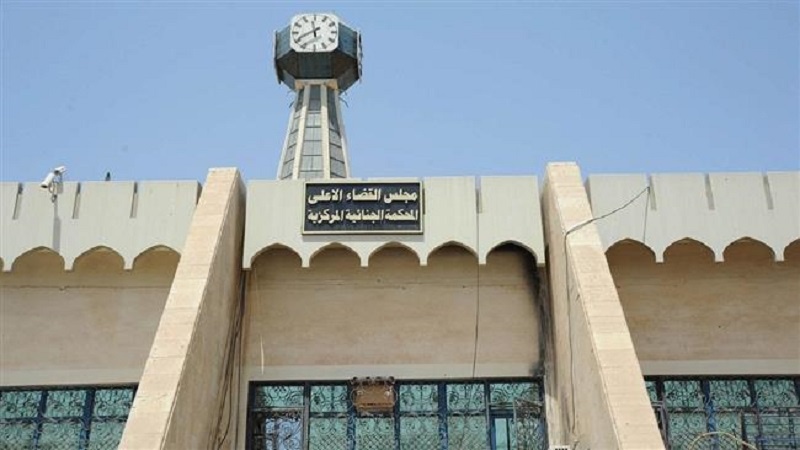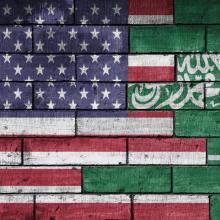July 10, 2019

A dozen French nationals are at risk of being arbitrarily executed in Iraq after they were sentenced to death for affiliation with the Islamic State (ISIL). The individuals were sentenced following unfair trials before the Central Criminal Court of Iraq (CCCI) between May 26 and June 3, 2019.
In an appeal to the UN Special Rapporteur on extrajudicial, summary, or arbitrary executions on June 25, 2019, MENA Rights Group and Nabil Boudi, the defendants’ lawyer, highlighted that France – having abolished capital punishment – has a legal obligation to ensure its citizens are not exposed to the death penalty either domestically or overseas.
Background
Between 2014 and 2016, the individuals travelled into areas under the control of ISIL, and allegedly assumed various responsibilities within the terrorist organisation in Syria. In the context of Kurdish-led military offensives against ISIL in 2018, they were arrested by the Syrian Democratic Forces, which handed them over to the Iraqi authorities in February 2019. The French government either facilitated these transfers or refrained from intervening, despite the well-founded risk that they could be subjected to torture and unfair trials, and face the death penalty in the receiving country.
Following an initial interrogation by the Iraqi security forces, during which they were subjected to torture, the individuals were charged with “membership of a terrorist organization” on the basis of Article 4 of the 2005 Anti-Terrorism Law. They were then taken to Muthana prison, a secret detention centre known for severe human rights violations. Further coercive interrogations were conducted until the end of May, when their trials began.
The trials against the French nationals were marked by the non-observance of fair trial norms: state-appointed lawyers could only access their clients’ files a few hours before the trial session began, which violates the fundamental rights of the defence, and torture allegations were systematically ignored. The individuals were all sentenced to death after a few hours of summary hearings with no adversarial proceedings.
Although Iraqi law provides for an automatic appeals process in death penalty cases, first instance judgements are rarely overturned on appeal. The risk of the sentence being applied is therefore high as other alleged foreign fighters have already been executed.
Appeal to UN Special Rapporteur
In a communication to the Special Rapporteur, MENA Rights Group and the defendants’ French lawyer affirmed that France should be held accountable for allowing its nationals to be transferred to a country where their right to a fair trial and protection from torture are undermined.
France should have been aware of the systematic use of torture against persons accused of terrorism and the systemic failure of the Iraqi justice system, as these issues have been well documented by NGOs as well as by the UN Committee against Torture (CAT). In June 2019, a member of the Iraqi parliament’s human rights committee, Wahda Al Jumaili, declared that “80 per cent of inmates sentenced to death were convicted on the basis of confessions extracted under torture”.
Nevertheless, in a public statement delivered before the French parliament on May 29, the minister of foreign affairs, Jean-Yves Le Drian, stated that the defendants had “fair trials”. He also declared that “France is opposed, on principle, to the death penalty, anytime and anywhere.” Yet, the government could not ignore that Article 4 of the 2005 Anti-Terrorism Law invoked against the defendants prescribes the death penalty as the compulsory and only applicable sanction; nor could it ignore that Iraq’s Constitution prohibits the granting of clemency or pardon for terrorism crimes.
Notwithstanding jurisdictional questions, France should uphold the prohibition of the death penalty extraterritorially, and should respect the absolute nature of its prohibition for French nationals, including in the context of counter-terrorism. The European Court of Human Rights (ECHR) already ruled against extradition to a state that imposes the death penalty in the case of Soering vs. the United Kingdom in 1989. In light of the precedent set by this case, MENA Rights Group affirms that states under the jurisdiction of the ECHR that have abolished the death penalty, including France, are obliged to take the necessary measures to repatriate their citizens on death row so they can be tried in full conformity with international fair trial standards.
Latest developments
On the basis of the joint communication sent by MENA Rights Group and Mr Nabil Boudi, the UN Special Rapporteur on extrajudicial, summary or arbitrary executions addressed a letter to the French Government dated 8 August 2019, concerning the allegation that France role in the transfer of seven of its nationals from Syria to Iraq, despite the risk of torture and unfair trials, leading to the death penalty.
She explained that abolitionist states like France must "obtain effective and credible guarantees that the death penalty will not be imposed before extraditing or deporting a person to a state where there is a real risk that this sentence be inflicted on him". Such assurances do not seem to have been obtained according to the UN expert.
She highlighted the numerous flaws in the administration of the Iraqi criminal justice system and the loopholes of Iraq's Anti-Terrorism Law No. 13 of 2005, which is based on a vague and overly broad definition of terrorism. Any death sentence imposed after an unfair trial or on the basis of a vague or ambiguous law therefore amounts to an arbitrary deprivation of life.
The communication sent to France recalls that, as a state party to the International Covenant on Civil and Political Rights (ICCPR), France is compelled to "adopt all reasonable measures to ensure that its nationals are not sentenced to death or executed abroad."
Image: Central Criminal Court of Iraq, Mohammad Cholak






